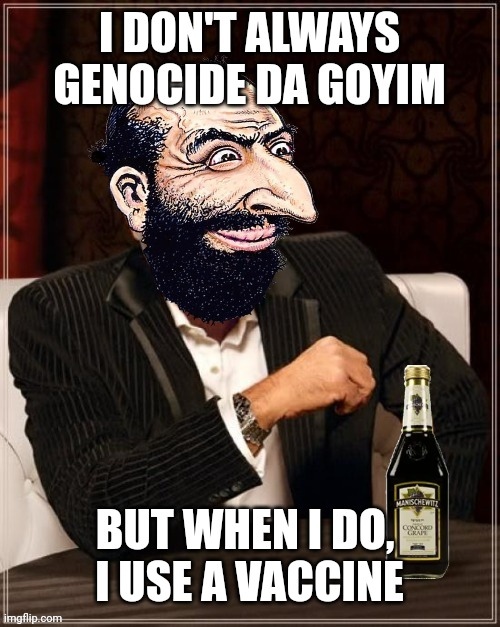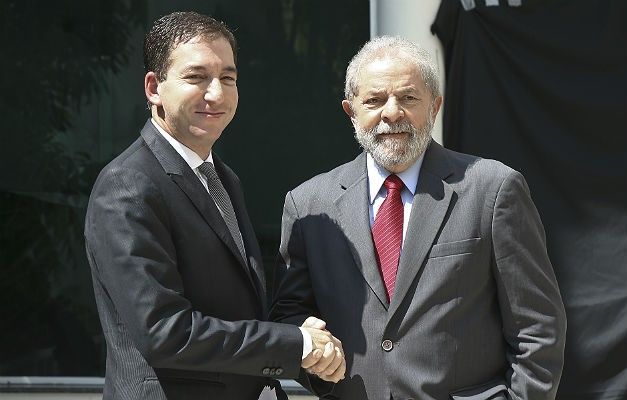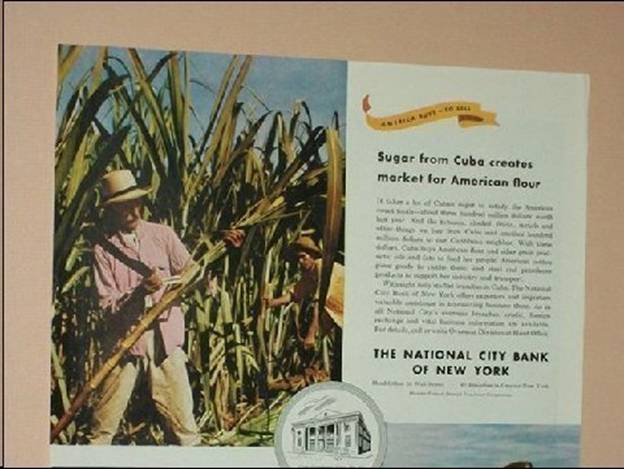
Left. The "Hun" was Spanish. In this 1898 magazine cover, Spain is depicted as the Maine's apelike murderer. Note the foot trampling the Stars and Stripes.
The present looks exactly like the past. The Spanish American war is
more proof that war is an Illuminati invention. They start all wars for power and profit. People who fight in these wars are dupes.
By James Perloff
(henrymakow.com)
The Spanish-American War of 1898 bore remarkable parallels to today's realpolitik.
• As Ferdinand Lundberg documented in America's Sixty Families, President William McKinley was ruled by Wall Street, especially the Rockefellers' National City Bank. McKinley had gone bankrupt while governor of Ohio, and was bailed out by a syndicate headed by Rockefeller front man Mark Hanna, who became McKinley's political manager and White House boss. Said Chicago's Chronicle (April 14, 1898): "The Rothschilds and the Morgans control the White House."
• Like today, Americans were growing disgusted with the corrupt Democratic and Republican parties, and the nominal distinctions between them. The Populist Party was formed in 1891 out of grass-roots opposition to Wall Street's political domination. The Rockefeller-Morgan-Rothschild axis decided to distract Americans with a new "enemy": Spain.
• The choice was not coincidental. Spain ruled Cuba, which by the 19th century had become the world's richest colony and largest sugar producer. National City Bank coveted Cuba's "white gold" as a complement to Standard Oil's "black gold."
• The Yellow Press, led by William Randolph Hearst and Joseph Pulitzer, began inundating Americans with fabricated tales of Spanish oppression: Spaniards feeding Cubans to sharks, roasting Cuban priests, slaughtering hospital patients where no hospital even existed.
• The decision to send the battleship Maine to Havana was made at a secret White House meeting of which no minutes were kept. Unknown to the ship's captain, Charles Sigsbee, neither the Spanish nor even the American consulate had been forewarned - but no shooting erupted, and the Spanish permitted her to dock.

(Early false flag, the sunken Maine)
• Hearst paid bribes to have the correspondence of Spanish ambassador Enrique Dupey de Lôme spied on. In violation of diplomatic immunity, a letter critical of McKinley was stolen and reprinted in The New York Journal under the headline "THE WORST INSULT TO THE UNITED STATES IN ITS HISTORY." Two days later - with anti-Spanish sentiments at peak - the Maine exploded in Havana harbor, killing 266 crew members.
• When the Maine sunk, the assistant secretary of the Navy was Teddy Roosevelt. After the war he became Governor of New York, and by 1901 was President of the United States. When the Lusitania sunk, the assistant secretary of the Navy was his cousin Franklin D. Roosevelt - who likewise went on to become Governor of New York and then President.
• The official U.S. naval court of inquiry could not determine who was responsible for the explosion, but the Yellow Press left no room for doubt. America went to war with the battle cry "Remember the Maine!"
• The last thing Spain wanted was to provoke America into war. The Spanish knew their navy (still mostly wooden) could not compete with America's steel warships, and defending an island less than 100 miles from the U. S. coast was impossible. The Spanish caved in to all demands from the McKinley administration, including recalling Cuba's governor Valeriano Weyler, and offering to give Cuba semi-autonomy.
• In chilling hypocrisy, McKinley claimed he had "exhausted" all diplomatic efforts, and secured a Congressional resolution authorizing military intervention unless "Spain relinquish its authority and government in the island of Cuba" (translation: "hand your sugar industry over to the banksters").
• Spain elected to fight the hopeless war for one reason: all Spaniards considered Cuba part of Spain. To surrender it would have meant revolution at home. The Spanish chose war with honor over disgrace and revolution.

Left: National City Bank advertisement promotes its Cuban sugar holdings.
• National City Bank financed the war with a $200 million loan, negotiated by Assistant Treasury Secretary Frank Vanderlip. After the war, the bank rewarded Vanderlip by making him its president, in which capacity he attended the Jekyll Island meeting that birthed the Fed. To help repay the loan, a telephone use tax was levied on the American people which remained in place for 108 years.
• Unsurprisingly, the USA won the war in four months. Mark Twain wrote that "when the smoke was over, the dead buried and the cost of the war came back to the people ... it suddenly dawned on us that the cause of the Spanish-American War was the price of sugar."
As Lundberg noted, after the war "the Cuban sugar industry gravitated into National City's hands."
• In his book War Is a Racket, Major General Smedley Butler - at the time of his death the most decorated marine in American history - wrote: "I have spent 34 years in active service as a member of the Marine Corps. And during that period I spent most of my time being a high-class muscle man for big business, for Wall Street and for the bankers.... I helped make Haiti and Cuba a decent place for the National City Bank to collect revenues."
• Hypocrisy characterized the war. American troops were told they were "fighting colonialism," yet under the surrender terms, the United States seized all of Spain's remaining colonies: Puerto Rico, Guam, and the Philippines. So rubes wouldn't catch on, these were now called "possessions" instead of "colonies." Troops were also told they were fighting so Cubans could have "self-government." Yet when the Filipinos asked for self-government, they were crushed in the Moro wars (1899-1913), during which the U.S military killed some 20,000 Filipinos. Lots of sugar in the Philippines.
• As always, the war was about more than profit. Dismembered as a world power, Spain no longer stood in the way of the New World Order. For the first time, Americans were persuaded that their military's duty was not merely national defence, but to "right wrongs" overseas. In the war's wake, the Populist Party disintegrated. And Britain, as the lone European nation to side with America instead of Spain, melted the ill-will that had lingered since the Revolutionary War: in 1898 the Anglo-American League was formed, with branches in the U.S. and England. The League led to the founding of the elitist Pilgrims Society, parent organization to the CFR and Royal Institute of International Affairs.
The past is prologue - you just won't find that prologue in "mainstream" history books, because the Illuminati own the publishing houses.
------------
***James Perloff has authored several books, including Truth Is a Lonely Warrior, published in 2013 in both Kindle and paperbound. It comprehensively describes the Illuminati drive to create world dictatorship through world government, and discusses many suppressed facts of history.*** -------------
First Comment by Deadeye Dick:
To regard William McKinley as the villain of the Maine false flag is as wrongheaded as blaming FDR for Pearl Harbor or George Bush, Jr. for 9/11. For one thing, he didn't have the power to do it, and for another, he didn't have any motive. Blame Wall Street and its associated cartels, not an otherwise excellent president who got swept up in the events of the day.
McKinley was a Lincoln Republican - and what happens to Lincoln and Lincoln Republicans? They all get murdered! Garfield and McKinley (both assassinated in office) were excellent figures and dedicated nationalists. McKinley's signature program was high tariffs to preserve American industry and agriculture. Teddy Roosevelt and the so-called progressives (not to be confused with the "Populists" of the 1890s, who have many good points and should be studied) reversed all his gains and destroyed the Republican party. Roosevelt focused on national parks while the British empire regained control of the world.
Then in 1921, Warren Harding comes in as a Lincoln Republican, installs a protective tariff and starts rebuilding America's naval capabilities and what happens - he's framed in a bribery scandal (Teapot Dome) and poisoned to death! And now our history books call him the worst president in history.
Get the picture? Learning about false flag attacks is fine, but if you're getting the context backwards, as Mr. Perloff does, what good does it do to know the details of the event?
-------------
James Perloff Replies:
A few comments. Authors such as Thomas Dilorenzo, and many states-rights advocates, consider "Lincoln Republican" a pejorative. Lincoln did much to impair the Constitution, especially in subordinating the states to federal power, but that is another subject. McKinley was not the mastermind of the false flag--I didn't say he was--and you are right, he had no personal motive, but he certainly played ball with Wall Street, which DID have motives. As to this being "as wrongheaded as blaming FDR for Pearl Harbor," see my article for this website written just last month:
https://henrymakow.com/2013/12/pearl-harbor-how-the-illuminati-start-wars.html
FDR had complete foreknowledge of the attack from multiple sources, and denied that information to our commanders in Hawaii. Consult the books by authors such as Morgenstern, Theobald, Kimmel, Toland, and Stinnett.
It is certainly true that McKinley, FDR, and Bush Jr. were not "running the show" in these events. Presidents follow the agenda set by the financial powers--politely called "the Establishment" and more candidly called "the Illuminati." But there is no figure more powerful in the government itself than the President, and these men bear responsibility for complicity and coverup.
Dan weighs in:
JG (in Comments) rightly points out that President McKinley wasn't a New World Order stooge. He's reacting the article's reference to McKinley's "chilling hypocrisy", ie., pretending that Spain was the aggressor. That's true, McKinley was all for taking Cuba from Spain.
It's important to remember McKinley openly represented American Imperialism - he was a Nationalist. He supported 'real' currency*, and stiff tariffs on imports. These three things are anathema to Globalists. The 'New World Order' - Globalism - isn't an extension of nationalist Imperialism. It's really the ultimate extension of usury. Unfortunately, Globalism isn't the answer to Capitalist Imperialism's past excesses that it pretends to be.
McKinley was shot by a first generation son of poor Polish immigrants: Leon Czolgosz. The week before shooting McKinley, Czolgosz hung out with Emma Goldman's followers at Sach's Cafe on Suffolk Street on the Lower East Side of Manhattan. He'd been in communication with Goldman's crowd for three years, since he attended her rally in Cleveland.
When Czolgosz shot McKinley, Goldman was arrested on suspicion of conspiracy to kill the President. Czolgosz kept his mouth shut till he was executed a few weeks later. Goldman was released for lack of evidence.
John D. Rockefeller had nothing to gain with this one. The suspected deep pockets man is Jacob Schiff, the banker now known to have funded Leon Trotsky's stay on the Lower East Side sixteen years later. *gold and silver in the hand, not worthless paper.
Jim Replies:
I agree that today, those three things--nationalism, tariffs, and hard currency--are anathema to globalists. However, in the past they were willing to support all three when it served their purposes. In the 19th century, when there was no League of Nations or UN yet, they were perfectly willing to wave the flag and support "nationalistic" wars, such as the Spanish-American, to reshape the global map, destroy a power like Spain and enhance their control of world commerce. Men like J. P. Morgan were also strongly pro-tariff when it came to protecting their interests in then-growing concerns like U.S. Steel. It is also interesting that the Populist Party favored an inflationary currency, which would have enabled struggling farmers to pay back loans to Wall Street with inflated dollars. At that moment in time, Morgan and Rockefeller were themselves "hard currency" men, and thus we had William Jennings Bryan delivering his "Cross of Gold" speech.
I think we better understand history when we realize that the policies of the Illuminati are not static but are adjusted according to the needs of the season. How different things have been In the past century. No question, the Illuminati have excoriated nationalism in favor of world government, destroyed American manufacturing with free trade policies, and debauched the U.S. dollar with the Fed's creation of fiat currency.






Alex said (January 19, 2014):
I would like to seize this opportunity to thank you so much for posting the articles written by James Perloff. Thanks to him I know now that the USSR struck first by gobbling up Mongolia and even parts of China, which in turn and only then provoked Japan to protect Asia from Communism by advancing beyond the Yalu River. One more scale off my eyes.